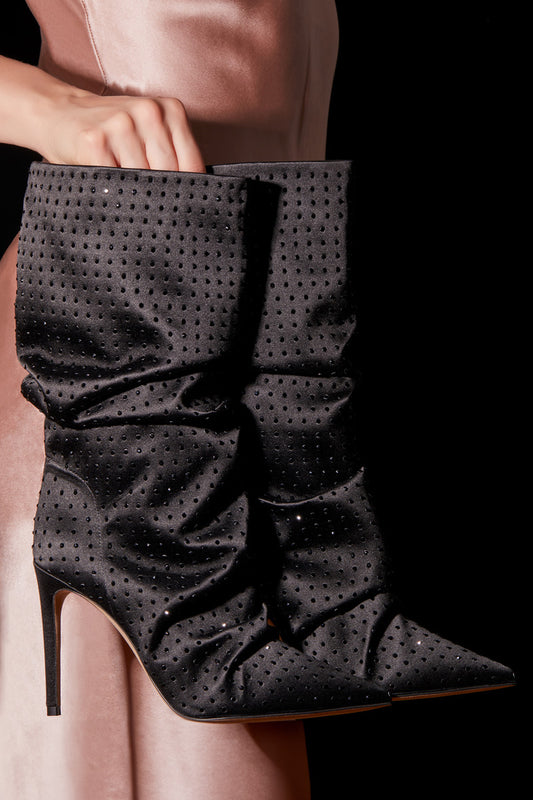
Sustainable Fashion: The New Era of Empowerment for Women
In the vibrant world of fashion, a revolution is quietly taking place—one that is reshaping the industry and empowering women across the globe. Sustainable fashion is no longer a niche or a passing trend; it is a movement grounded in eco-consciousness and a commitment to ethical practices. As more women seek to align their wardrobes with their values, sustainable fashion emerges as a beacon of empowerment, inviting self-expression while advocating for a healthier planet.

The Shift Towards Sustainability
The shift towards sustainable fashion reflects a broader cultural awakening to environmental issues. Consumers are increasingly aware of their purchasing power and its impact on the world. According to a survey by McKinsey & Company, 67% of consumers consider the use of sustainable materials in a brand's products when making purchases. Brands are responding to this demand by integrating eco-friendly practices into their operations. Leading the charge are companies like Reformation and Stella McCartney, which are not only producing stylish apparel but also prioritizing sustainability in their sourcing and manufacturing processes.
Reformation, for example, employs a "sustainable fabric" approach, using materials like Tencel, recycled cotton, and linen, all while maintaining chic designs that cater to modern aesthetics. Similarly, Stella McCartney has made it her mission to create luxury fashion without harming the environment. "There is no planet B," she famously said, underscoring the urgency of the sustainable fashion movement.
Empowerment Through Choice
Wearing sustainable fashion offers women an opportunity to express their individuality while making a positive impact on the world. The psychological benefits of donning clothing that align with one's values are profound. Dr. Carolyn Mair, a fashion psychologist, notes, “When we wear clothes that reflect our beliefs, we feel more authentic and empowered.” This connection between clothing and identity allows women to embrace their unique styles without compromising their ethical stances.
As fashion becomes more inclusive, brands are also expanding their size ranges and diversifying their offerings to cater to all body types. This commitment to inclusivity empowers women of all shapes and sizes to find clothing that not only fits well but also resonates with their values.

The Role of Community
The rise of social media and online platforms has given birth to vibrant communities centered around sustainable fashion. Women from all walks of life are sharing their journeys, tips, and personal styles, creating a supportive network that champions conscious consumption. These online spaces are not just about fashion; they are about building a movement where women uplift each other and promote ethical practices in the industry.
Organizations such as Fashion Revolution and campaigns like "Who Made My Clothes?" encourage transparency and accountability among brands while fostering community engagement. The solidarity found in these movements offers a sense of belonging and collective empowerment, driving women to take control of their fashion choices and advocate for change.
In addition to online communities, local initiatives and events are gaining traction. Fashion swaps and sustainable markets allow women to exchange clothing, reduce waste, and promote circular fashion. These gatherings not only encourage sustainable practices but also foster connections and friendships based on shared values.
The Impact of Sustainable Fashion on the Global Economy
The impact of sustainable fashion extends beyond individual empowerment; it is reshaping the global economy. The sustainable fashion market is projected to reach $8.25 billion by 2023, reflecting a significant shift in consumer spending habits. Brands that prioritize sustainability are not just appealing to eco-conscious consumers—they are also setting new standards for the industry.
Furthermore, sustainable fashion contributes to job creation in local economies, with many brands opting for fair labor practices and local production. This focus on ethical practices ensures that workers are compensated fairly and work in safe conditions, promoting social equity alongside environmental responsibility.
Statistics that Matter
- 67% of consumers consider sustainability when purchasing fashion.
- The sustainable fashion market is projected to reach $8.25 billion by 2023.
- Sustainable brands often lead to 30% less waste in production processes.
Conclusion
As we navigate this new era of fashion, it is evident that sustainability transcends mere trendiness; it is a lifestyle choice that empowers women to take control of their narrative. By choosing sustainable fashion, women are not only enhancing their wardrobes but also contributing to a healthier planet and a more equitable industry. The movement encourages self-expression while instilling a sense of responsibility towards the environment and society.
Let's embrace this empowering shift and redefine what it means to be stylish in the modern world. As we adorn ourselves in sustainable pieces, we celebrate our identities and pave the way for future generations to thrive in a world where fashion and respect for the planet coexist.
Are you ready to take part in this movement? The choice is yours—make it stylish, make it sustainable, and most importantly, make it yours.